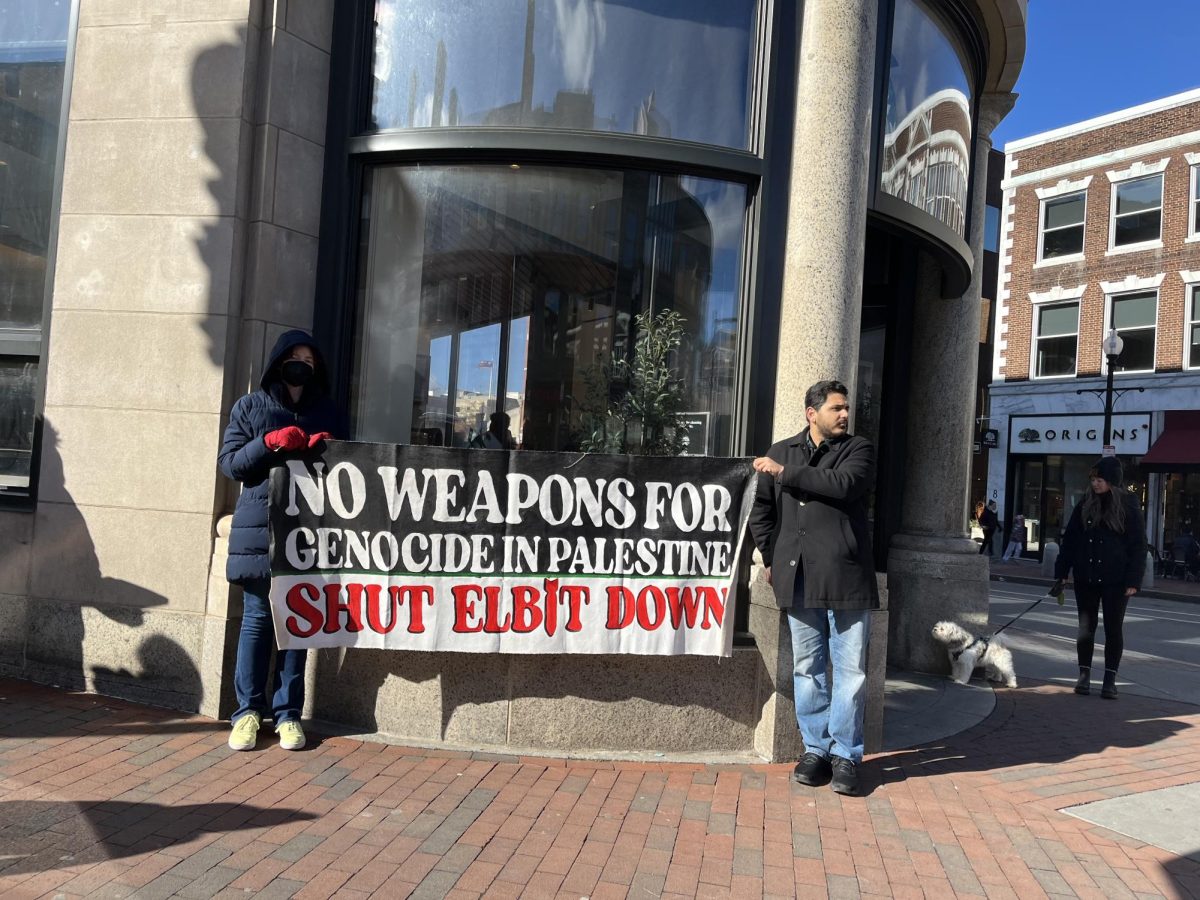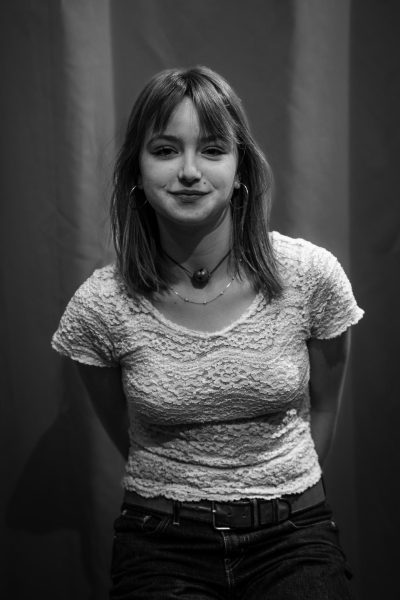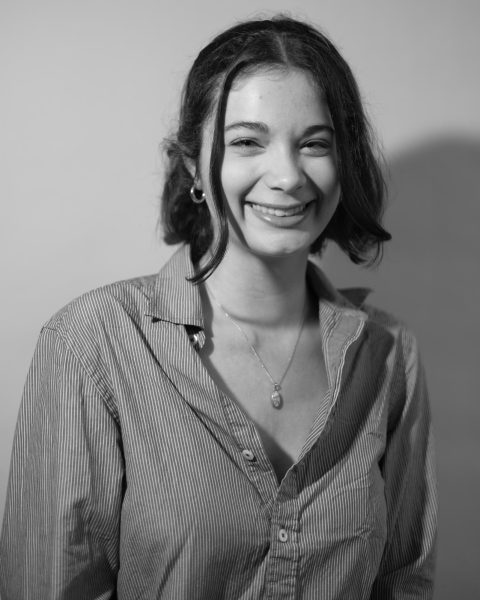“I’ve been hearing from residents who say, ‘I lost 12 family members in Gaza, and it feels like the world doesn’t care,”’ said former Cambridge Mayor and current City Councilor Sumbul Siddiqui. “It’s our job as elected officials to push those voices forward, to address the issues that residents care about, and then advocate to those in higher office to listen to our constituency.” On January 29th, Cambridge made good on this promise; in a 9-0 unanimous decision, the City Council voted to pass a formal ceasefire resolution to halt the violence in Israel-Palestine. The resolution itself, which resembles those put forward by other cities across the US, calls for, “an immediate, negotiated ceasefire by both Hamas and Netanyahu Administration, the release of all hostages, and the urgent implementation of humanitarian aid,” according to the policy order. On January 29th, dozens of Cambridge residents packed the entryway of City Hall. Cambridge for Palestine, the activism group that organized the rally, projected the council meeting on a large screen as residents called in to give public comment. When residents spoke in favor of the resolution, the gathered advocates cheered; when others called in against the resolution, they muted the speakers and chanted, “Shut it down.”
“Our tax dollars are going to this genocide and we have every right to speak out against it,” Jericoh Illouz, a Cambridge resident who attended the rally, explained to the Register Forum. Litu Kabir, another Cambridge attendee, agreed. “Borders are artificial; everything that happens in the rest of the world is our responsibility, especially when we’re supporting it with our money.” Leaders of the rally led several chants, including, “Not another nickel, not another dime, no more money for Israel’s crimes,” and, “City councilors you can’t hide, you’re supporting genocide.”
Some Cambridge residents disagreed with the resolution being passed. “When it comes to city issues, the City Council has power. But when it comes to international issues, the City Council does not,” Dan Eisner, a Cambridge resident who was at City Hall, told the Register Forum. Residents from public comment agreed. “[The resolution] has no legitimate purpose and only divides us in favor of external political purposes,” said Ori Porat, a Cambridge resident. “Performative statements relating to the other side of the world are detracting from our primary mission: making our lives better here.”
After several hours of public comment, the resolution was passed with six whereas clauses. These remain controversial, at odds with what many of the activists present at the ceasefire rally advocated for. “My belief is that as a city we should actively call for a ceasefire with no additional language,” Meg Kelly, a Cambridge resident, told the Register Forum. Rally speakers who called for the elimination of the clauses entirely were met with wild applause.
“The ‘whereas’ in a policy order is where you’re making your argument for what you’re going to ask for at the end of the order,” Marc McGovern, the Cambridge Vice Mayor, explained. “We were trying to thread a very difficult needle, a very emotional needle here, figuring out how to get our values across without causing further harm and pain.”
Ayesha Wilson, who was recently elected to City Council this November and voted in favor of the ceasefire, agreed. “People may say [the resolution] is watered down. It may be, but I think we did a good job of staying true to the original intent: to call for a ceasefire,” she told the Register Forum.
This is the second ceasefire vote the Council has seen in three months. On November 28th, a ceasefire resolution was co-sponsored by City Councilor Quinton Zondervan and Mayor Sumbul Siddiqui. The initial resolution, however, failed to pass. “I was really disappointed in the City Council,” said Councilor Siddiqui.
During its initial proposal, Councilor Patty Nolan “called the question,” which shuts down further discussion on the matter. The Council took a vote on whether to call it, and ruled in favor of ending all debate. Once the question was called, the councilors had to vote on the original resolution without any of the proposed amendments.
Councilor Nolan explained her action to the Register Forum. “I’m not sure [voting on a ceasefire] is significant,” she said. “In all honesty, I don’t think it will make much of a difference for the people who need to hear this.” Only two of the nine councilors voted to pass the original resolution, and it did not return to the table for discussion until December.
Other councilors, however, did not agree with Nolan’s decision to call the question. “What was disappointing was that there was a substitute policy order that would have been entered in, had the call to question not happened,” said Councillor Wilson. “Potentially, in that other order there had been language that other members of the Council would have supported.”
McGovern, one of the councilors who voted “present” rather than “in favor” of the original ceasefire resolution, explained his position. “After Councillor Nolan ended the debate… I either had to vote for the original order, which I thought was problematic in some ways, or I had to vote no. The only other thing I could do was vote present; we [the Council] got kind of backed into a corner.”
Cambridge residents were also unimpressed by the decision. “Arguing that the City Council shouldn’t or doesn’t have the power to pass something like a ceasefire resolution is really ignorant,” said Yasmeen Abu-Rubieh ’25, a student who organized the CRLS Free Palestine walkout last November.
Though many are satisfied with the now passed resolution, other residents are still frustrated with the city’s general response. Dozens showed up to a recent protest in Harvard outside of Chase Bank, which has invested in Elbit systems, a weapons manufacturer that supplies 85% of the weapons used by the Israeli military, according to Al-Jazeera. “[Elbit systems] advertise the fact that they battle test their weapons on Palestinians,” RS, a Cambridge resident, revealed to the Register Forum. “Cambridge is supposed to be a place where people can thrive; we don’t want the machinery of death in our communities.”
Other protestors agreed about local involvement in the Israel-Palestine conflict. “I hope that we can show this bank that they should be thinking about the values behind the investments they’re making,” Cambridge protester Stephanie G. told the Register Forum. “And I don’t mean monetary values, I mean values about human rights, humanity and compassion,” she explained.
Some, however, like Councilor Nolan, defend the Cambridge branch of Elbit: “I called Elbit Systems when this came up… and they mostly do health care in Cambridge,” she relayed to the Register Forum. “The idea of us saying ‘Elbit Systems should not have this small outpost in Cambridge’ when they’re doing healthcare work strikes me as odd.”
Other City Councilors explained that it would be complicated to evict Elbit from Cambridge. “We have no authority to tell [landlords] who they can or can’t rent an office to any more than we can tell someone who owns a house who they can and can’t rent an apartment to,” McGovern told the Register Forum.
As the Israeli bombardment of Gaza continues, some, like Councilor Wilson, look for a path of healing and common ground in the midst of such devastation. “My hope is that the community will see [the ceasefire resolution] as one step towards trying to come together,” she told the Register Forum. “You’re not going to get 100% of your needs met, I’m not going to get 100% of my needs met, but otherwise how are we going to find ourselves in a common place or on a common ground?”
This article also appears in our February 2024 print edition.















